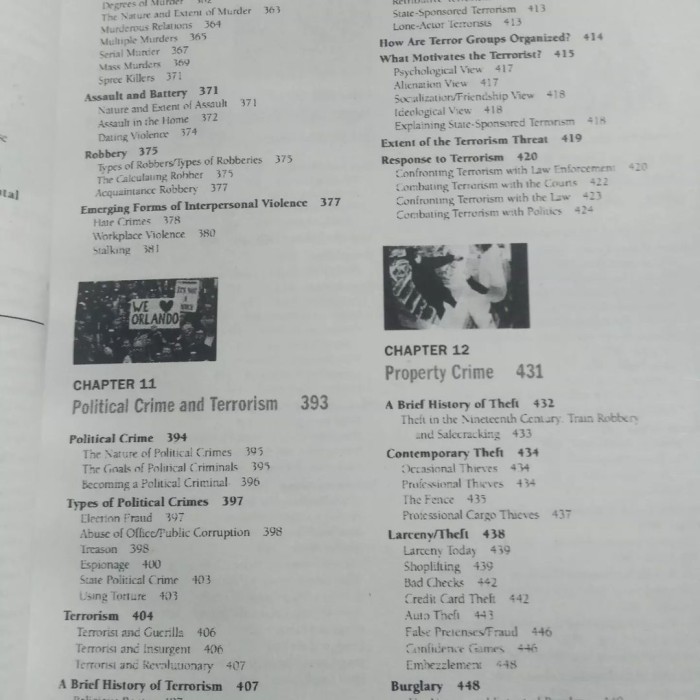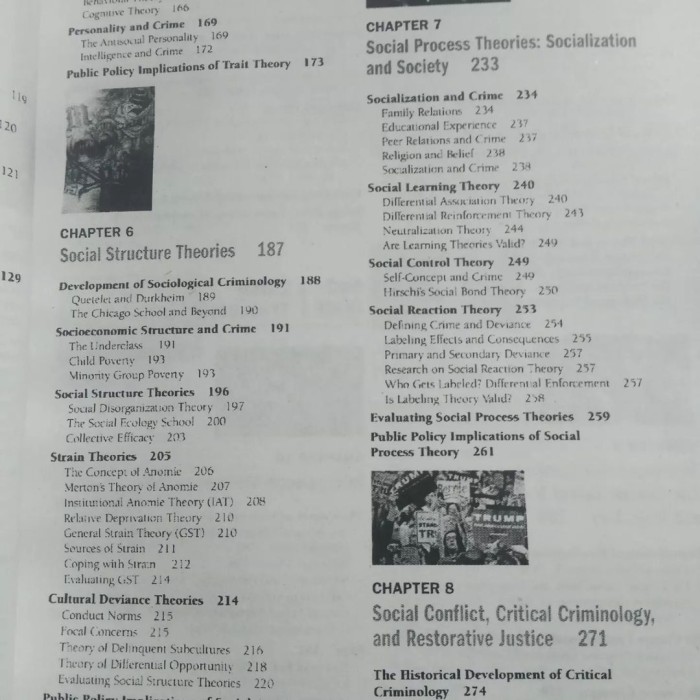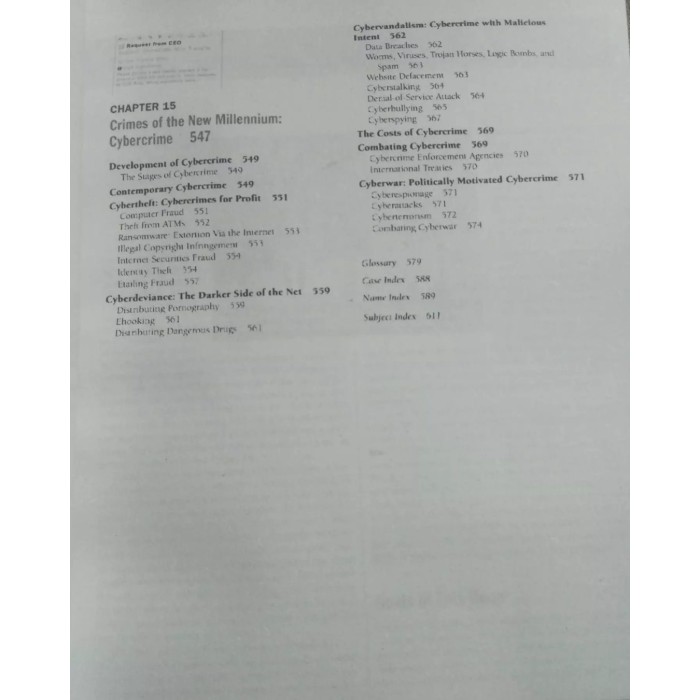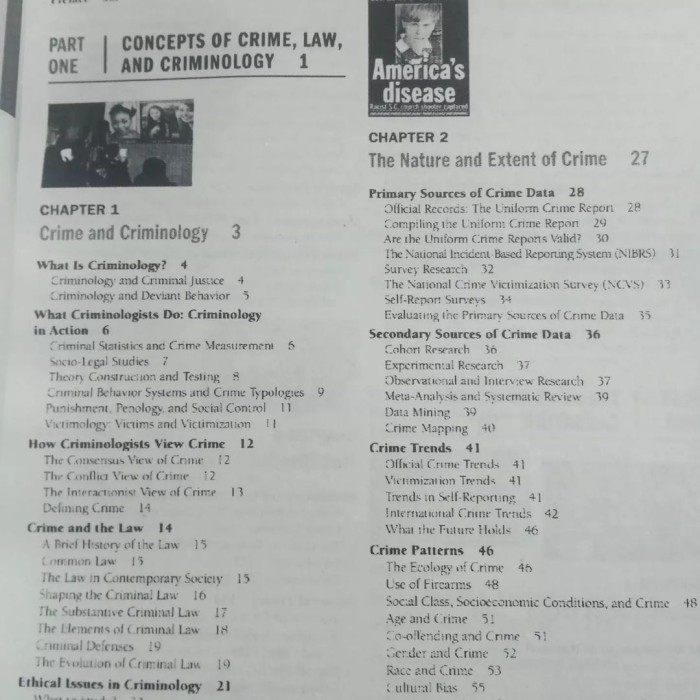Criminology theories patterns and typologies 13th edition – In this captivating 13th edition of Criminology Theories, Patterns, and Typologies, renowned scholars present a comprehensive analysis of the multifaceted nature of crime. This edition delves into the evolution of criminological theories, the diverse patterns of crime, and the typologies used to classify criminal behavior.
With an engaging narrative and thought-provoking insights, this book offers a profound understanding of the causes, consequences, and potential solutions to crime.
The text meticulously examines the historical development of criminological theories, providing an overview of the major theoretical perspectives that have shaped the field. It explores the strengths and limitations of each theory, allowing readers to critically evaluate their applicability to real-world crime patterns.
Criminological Theory: Evolution and Core Concepts: Criminology Theories Patterns And Typologies 13th Edition

Criminological theory has evolved over time, with different perspectives emerging to explain the causes of crime. These perspectives include:
- Classical theory
- Positivist theory
- Social conflict theory
- Social learning theory
- Social control theory
- Labeling theory
- Rational choice theory
Each of these perspectives has its own strengths and limitations, and no single theory can fully explain the causes of crime.
Patterns and Typologies of Crime
Crime patterns can be identified by analyzing data on the frequency, location, and time of occurrence of crimes. These patterns can be used to develop crime typologies, which are classifications of crimes based on their similarities.
- Crime typologies can be used to identify crime hot spots, which are areas with a high concentration of crime.
- They can also be used to develop crime prevention strategies that are tailored to the specific types of crime that are occurring in a particular area.
The Social Ecology of Crime
The social ecology of crime is the study of the relationship between the physical and social environment and crime. This perspective suggests that crime is caused by a combination of factors, including:
- Neighborhood poverty
- Residential instability
- Lack of social cohesion
- Concentrated disadvantage
Social ecology theory has been used to develop crime prevention strategies that focus on improving the physical and social environment of high-crime neighborhoods.
Biological and Psychological Theories of Crime
Biological and psychological theories of crime suggest that crime is caused by factors such as:
- Genetics
- Neurological abnormalities
- Mental illness
- Personality disorders
These theories have been criticized for being deterministic and for ignoring the role of social factors in crime causation.
Economic Theories of Crime
Economic theories of crime suggest that crime is caused by economic factors such as:
- Poverty
- Unemployment
- Income inequality
These theories have been criticized for ignoring the role of social and psychological factors in crime causation.
Rational Choice Theory
Rational choice theory suggests that criminals are rational actors who weigh the costs and benefits of committing a crime before deciding whether or not to do so.
- This theory has been criticized for ignoring the role of emotions and social factors in crime causation.
Labeling Theory
Labeling theory suggests that crime is caused by the way that society labels and treats people.
- This theory has been criticized for ignoring the role of individual factors in crime causation.
Social Control Theory
Social control theory suggests that crime is caused by a lack of social control.
- This theory has been criticized for ignoring the role of social and economic factors in crime causation.
Conflict Theory, Criminology theories patterns and typologies 13th edition
Conflict theory suggests that crime is caused by social conflict and inequality.
- This theory has been criticized for being too deterministic and for ignoring the role of individual factors in crime causation.
Feminist Theories of Crime
Feminist theories of crime suggest that crime is caused by the way that society treats women.
- These theories have been criticized for being too narrow and for ignoring the role of other social factors in crime causation.
Critical Criminology
Critical criminology is a broad perspective that critiques the traditional criminological theories.
- Critical criminologists argue that traditional theories are too narrow and that they ignore the role of social, political, and economic factors in crime causation.
Helpful Answers
What is the significance of studying criminological theories?
Understanding criminological theories provides a framework for analyzing the causes and patterns of crime, enabling researchers and policymakers to develop effective prevention and intervention strategies.
How do crime patterns contribute to our understanding of criminal behavior?
Crime patterns provide valuable insights into the spatial and temporal distribution of crime, helping identify high-risk areas and target resources for prevention efforts.
What are the ethical implications of using biological and psychological theories to explain crime?
While biological and psychological factors may contribute to criminal behavior, it is crucial to consider the potential for stigmatization and discrimination when using these theories to explain crime.


